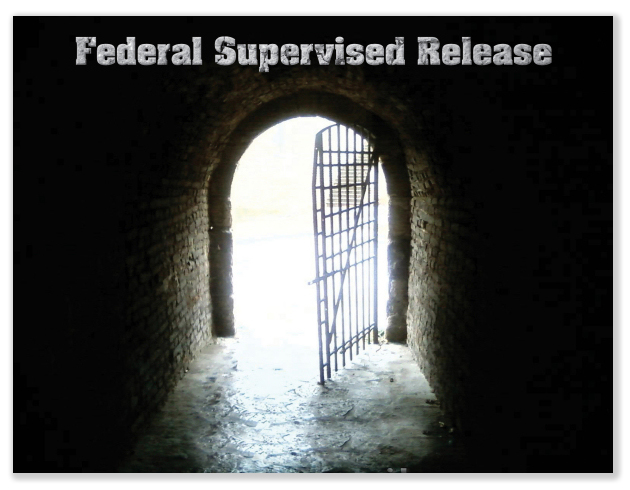We post news and comment on federal criminal justice issues, focused primarily on trial and post-conviction matters, legislative initiatives, and sentencing issues.

P.O. KNOWS BEST, AND OTHER STORIES
A pair of supervised release condition cases last dramatically broadened defendants’ protections against probation officers running amok, but greatly narrowed the window defendants have to challenge those conditions.
 First, a little background: In the Sentencing Reform Act of 1984, Congress decreed that virtually all persons convicted of a federal criminal offense who were sentenced to prison would also serve a term of supervised release – during which they would be subject to limitations on travel and association, to regular reporting requirements, and to oversight by a probation officer – after the prison sentence ended.
First, a little background: In the Sentencing Reform Act of 1984, Congress decreed that virtually all persons convicted of a federal criminal offense who were sentenced to prison would also serve a term of supervised release – during which they would be subject to limitations on travel and association, to regular reporting requirements, and to oversight by a probation officer – after the prison sentence ended.
Thus, supervised release is similar to what used to be parole. The conditions of supervised release are imposed by the district judge at sentencing, at which time the defendant – focused entirely on the impending prison term – hardly ever pays attention to the many ambiguities and indignities that the supervised release terms (a number of which are of dubious constitutionality) will impose on him or her after prison is but an unpleasant memory.
Now back to the live action: One of the supervised release conditions imposed on Shawn Lee, who was convicted of settling meth, prohibited him from “knowingly meeting, communicating, or otherwise interacting with any person whom she knows to be a convicted felon… unless granted permission to do so by the probation officer.” He appealed the supervised release condition, arguing that it was an improper delegation of Article III power by the court to the probation officer, and that – because Shawn’s two sons were also convicted felons (it appearing to run in the family) – it meant the PO could keep Shawn from seeing his own offspring.
Federal judges are known as “Article III judges,” because they are appointed by the president and confirmed by the Senate under Article III of the constitution, which give them (and only them) the power and duty of imposing punishment on a defendant. While an Article III judge may task a probation officer (who is not an Article III judge) with “performing ministerial acts or support services related to the punishment imposed,” the non-delegation rule prohibits the judge from allowing a probation officer to decide the nature or extent of a defendant’s punishment.”
 Last week, the 7th Circuit ruled the supervised release condition went too far. “The probation officer’s future task, then, is not merely to manage or supervise, but to determine whether, when, and how a particular component of Lee’s punishment is imposed.” The condition “anoints the probation officer with the sole authority for deciding if” Shawn can even see his own kids.
Last week, the 7th Circuit ruled the supervised release condition went too far. “The probation officer’s future task, then, is not merely to manage or supervise, but to determine whether, when, and how a particular component of Lee’s punishment is imposed.” The condition “anoints the probation officer with the sole authority for deciding if” Shawn can even see his own kids.
“Article III does not confer upon the probation officer the authority to release a convict from a component of his or her sentence, either,” the court said. “The clause ‘unless granted permission to do so by the probation officer’ violates this principle and must be stricken… only the district judge can permit or deny association.”
Supervised release conditions are usually chock-a-block with delegations of power to the PO. This decision suggests that most of those are constitutionally flawed. But before inmates fire up their law library typewriters, they should consider a 6th Circuit decision, also from last week.
Robert Faber complained that his supervised release conditions did not let him live with his Wiccan religion “spouse.” He filed an 18 USC § 3583(e)(2) motion to modify the condition, arguing it violated the Religious Freedom Restoration Act.
The district court denied the motion, and Bob appealed.
Last week, the 6th Circuit held that it lacked jurisdiction. Under § 3583(e)(2), a district court may modify or rescind a condition of supervised release after considering certain enumerated factors, including “the circumstances of the crime, the characteristics of the defendant, deterrence, protecting the public, providing the defendant with training and education, and others,” the Circuit said. “Not included: illegality of the condition.”
 Under the Sentencing Reform Act of 1984, the right to challenge an illegal sentence under F.R.Crim.P. 35(a) was cut, requiring defendants to move for such relief within just 14 days after sentence. “Construing § 3583(e)(2) as allowing district courts to eliminate an allegedly illegal condition at any time would disregard the plain text of the statute and frustrate Congress’s intent to encourage timely challenges.”
Under the Sentencing Reform Act of 1984, the right to challenge an illegal sentence under F.R.Crim.P. 35(a) was cut, requiring defendants to move for such relief within just 14 days after sentence. “Construing § 3583(e)(2) as allowing district courts to eliminate an allegedly illegal condition at any time would disregard the plain text of the statute and frustrate Congress’s intent to encourage timely challenges.”
Bob could have appealed the condition, claiming illegality. He could have filed a timely Rule 35(a) motion. But he did not. He can argue under 18 USC § 3582(e)(2) that the supervised release condition should be set aside for any number of reasons, but the condition’s illegality is not one of them.
United States v. Lee, 2020 U.S. App. LEXIS 4944 (7th Cir. Feb. 18, 2020)
United States v. Faber, 2020 U.S. App. LEXIS 5063 (6th Cir. Feb. 19, 2020)
– Thomas L. Root








